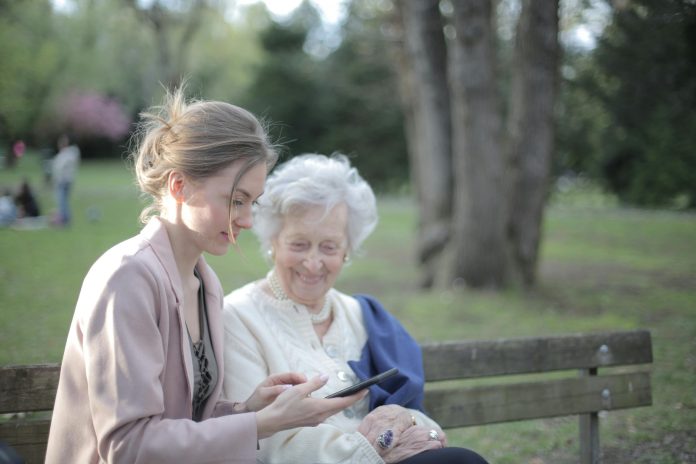Guilt stalks many dementia caregivers day and night. That nagging voice questions every decision, judges every reaction, and sets impossible standards that no human could meet.
This hidden burden rarely gets discussed, yet almost everyone providing dementia care experiences it. The emotional drain steals energy needed for actual caregiving and personal wellbeing. Many struggle silently, unaware that these feelings represent a normal response to extraordinary circumstances.
Recognizing guilt as an expected reaction—not evidence of failure—opens the door to emotional relief and more sustainable care.
How Guilt Affects Caregiver Health
Ongoing guilt takes a measurable toll on physical and mental health. Studies show caregivers experiencing persistent guilt have higher rates of depression, weakened immune function, and more stress-related health problems.
These health impacts eventually undermine caregiving itself. Addressing guilt becomes necessary maintenance—not a luxury—that helps sustain quality care over months and years.
Common Forms of Caregiver Guilt
The Comparison Trap
Support groups and social media can create the false impression that other caregivers handle everything perfectly. These curated glimpses rarely show the full reality of struggles happening behind closed doors.
Finding Better Perspective:
Question what purpose perfectionist standards serve in your situation. Most caregivers share only selective parts of their experience, creating unrealistic impressions. Focus on meeting specific needs rather than measuring against idealized standards. Seek out honest conversations with others who discuss both successes and difficulties openly.
When Emotions Run High
Unpredictable behaviors common in dementia naturally trigger frustration or anger at times. These human reactions often cause crushing guilt afterward, especially following sharp words or impatient moments.
Handling Emotional Moments:
Learn to spot early signs of mounting tension before reaching a breaking point. Create simple ways to step back when emotions intensify—even briefly moving to another room can reset feelings. Regular physical activity provides essential stress release. Remember that occasional emotional reactions don’t erase the countless acts of patience and kindness provided daily.
The Changed Identity
Many caregivers feel guilty about wanting personal time or needing help with responsibilities. This guilt often comes from beliefs about what makes someone a “good” spouse, child, or friend.
Reshaping Caregiver Identity:
Regular breaks actually serve the person with dementia by providing a refreshed, more patient caregiver. Start with short separations to build comfort before exhaustion makes breaks absolutely necessary. Accepting help represents smart resource management rather than personal failure. Schedule regular time away as essential maintenance rather than optional luxury.
Regrets About the Past
The time before diagnosis often involves misunderstood symptoms that led to conflicts. After diagnosis, past reactions can haunt caregivers who now understand these were disease symptoms, not intentional behaviors.
Healing Historical Regrets:
Knowledge changes everything—responses made before diagnosis were based on what was understood at the time. Focus energy on current care rather than revisiting past interactions that cannot be changed. Use personal experience to help others recognize early symptoms they might misinterpret. Remember that all relationships include difficult moments, regardless of health status.
The Burden of Major Decisions
Transitioning someone to residential care, such as a memory care community, creates profound guilt, especially when promises were made about home care. These commitments typically happened before understanding the full progression of dementia.
Making Peace with Hard Choices:
Promises made earlier lacked complete information about future needs and the intensive demands of late-stage care. Many caregivers discover that meaningful connection improves when exhaustion no longer dominates visits. Care means ensuring appropriate support rather than personally providing every service. Base decisions on current realities rather than expectations formed before understanding dementia’s full impact.
Mixed Feelings Near Life’s End
Caregivers often experience conflicting emotions when dementia reaches final stages, including relief alongside grief. This natural response frequently causes shame for feeling anything beyond sadness.
Accepting Emotional Complexity:
Relief acknowledges the difficulty of the journey without diminishing love for the person. Grief actually begins long before death as abilities gradually diminish throughout the disease. Emotional responses rarely follow neat patterns, particularly in circumstances as complex as dementia. Support groups specifically for dementia caregivers offer spaces where these mixed feelings are understood as normal.
Breaking Isolation
Guilt grows stronger in silence. Simply naming these feelings when talking with others who understand can reduce their power significantly. Support groups, trusted friends, or counselors provide spaces where speaking about guilt reveals how universal these experiences truly are.
Shared understanding transforms vague guilt into specific challenges with practical solutions. What felt like personal moral failure becomes recognized as a common experience with known coping strategies.
Questions That Build Self-Compassion
When guilt surfaces, ask:
Would another caregiver in this exact situation deserve such harsh judgment? What advice would be given to a friend expressing identical feelings? Does this particular guilt create any positive change or simply add suffering? What realistic options existed in that moment given the available resources? How might this emotional energy better serve both caregiver and care recipient?
These reality checks usually reveal that guilt stems from impossible expectations rather than actual failures of care or character.
Dementia care challenges everyone emotionally, physically and spiritually. Recognizing guilt as a normal response rather than evidence of inadequacy frees up energy for what truly matters—providing compassionate care both to the person with dementia and to yourself.
























